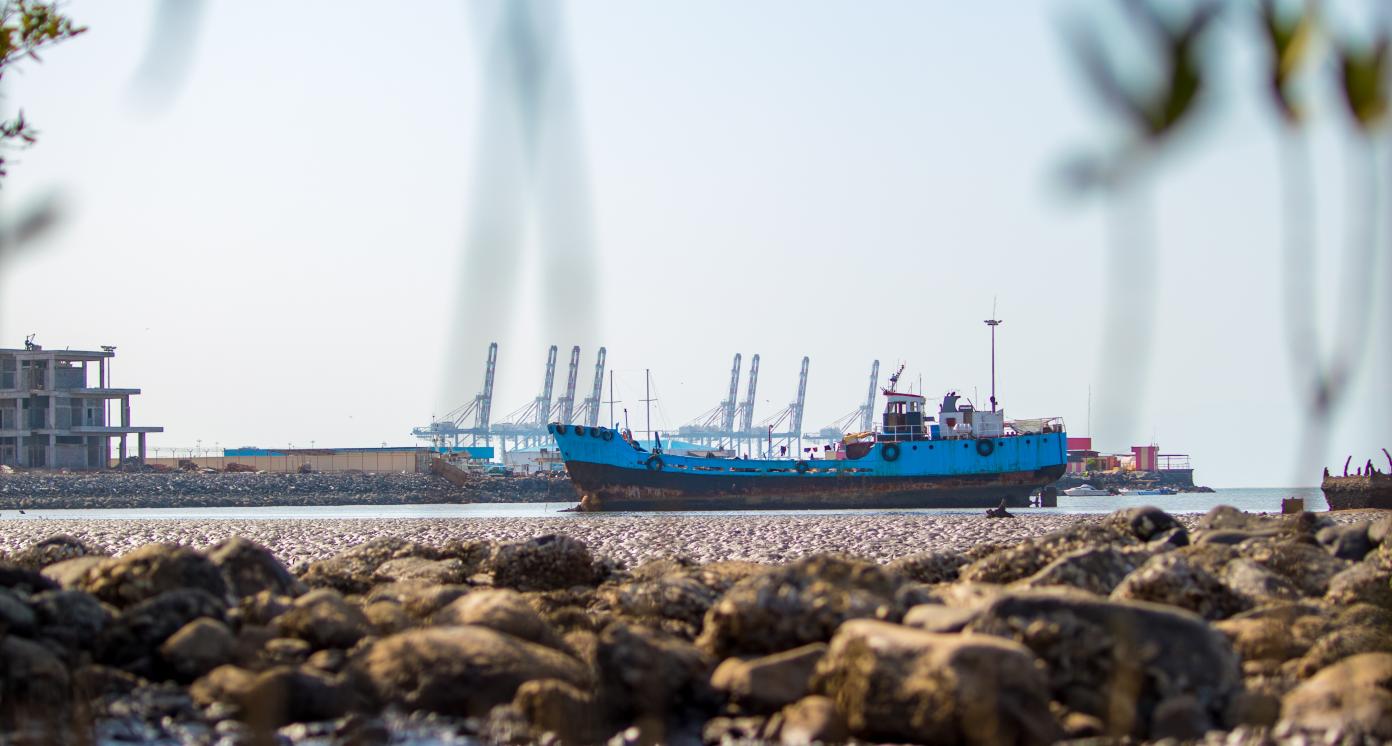Waste Collection and Disposal Services
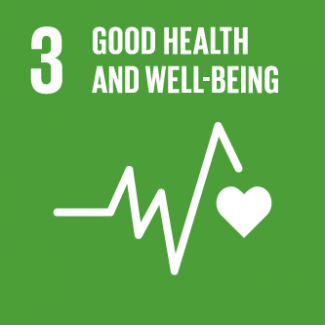
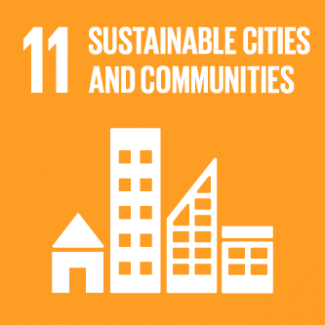
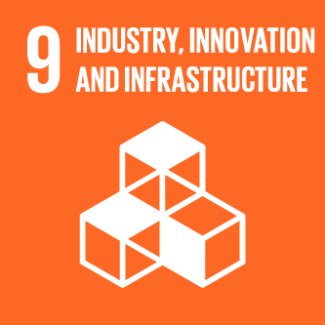
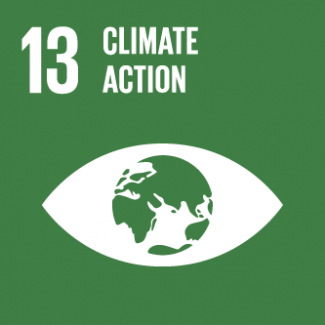
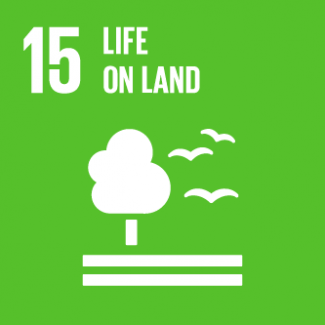
Business Model Description
Provide waste management services, such as waste collection and disposal for residential and corporate customers.
Expected Impact
Improve wellbeing of populations and advance a circular system protecting resources and the environment.
How is this information gathered?
Investment opportunities with potential to contribute to sustainable development are based on country-level SDG Investor Maps.
Disclaimer
UNDP, the Private Finance for the SDGs, and their affiliates (collectively “UNDP”) do not seek or solicit investment for programmes, projects, or opportunities described on this site (collectively “Programmes”) or any other Programmes, and nothing on this page should constitute a solicitation for investment. The actors listed on this site are not partners of UNDP, and their inclusion should not be construed as an endorsement or recommendation by UNDP for any relationship or investment.
The descriptions on this page are provided for informational purposes only. Only companies and enterprises that appear under the case study tab have been validated and vetted through UNDP programmes such as the Growth Stage Impact Ventures (GSIV), Business Call to Action (BCtA), or through other UN agencies. Even then, under no circumstances should their appearance on this website be construed as an endorsement for any relationship or investment. UNDP assumes no liability for investment losses directly or indirectly resulting from recommendations made, implied, or inferred by its research. Likewise, UNDP assumes no claim to investment gains directly or indirectly resulting from trading profits, investment management, or advisory fees obtained by following investment recommendations made, implied, or inferred by its research.
Investment involves risk, and all investments should be made with the supervision of a professional investment manager or advisor. The materials on the website are not an offer to sell or a solicitation of an offer to buy any investment, security, or commodity, nor shall any security be offered or sold to any person, in any jurisdiction in which such offer would be unlawful under the securities laws of such jurisdiction.
Country & Regions
- Djibouti: Tadjourah
- Djibouti: Obock
Sector Classification
Infrastructure
Development need
Sanitation is among the key infrastructural challenges for Djibouti. Poorly maintained systems cause spontaneous sewage overflows in the capital (1). The cost of sanitation services is high (2). Solid waste management is one of the main challenges for improving living conditions in urban areas (2).
Policy priority
The Vision Djibouti 2035 includes large-scale infrastructure investments focused on public projects, such as the construction of a railroad and a water pipeline (1). The Horn of Africa Initiative also prioritizes infrastructure, allocating USD 12.5 billion to develop cross-border regional infrastructure (3).
Gender inequalities and marginalization issues
Gaps in access to good infrastructure affect women disproportionately, with lack of access to water and electricity presenting larger opportunity costs for women. Poor urban transport also impacts rural communities' and women's access to key services and employment opportunities (5).
Key bottlenecks introduction
Challenges in the infrastructure sector include limited access to water rendering road construction and compaction work difficult, high costs related to imported construction material, and the lack of proven-in-marked business models in Djibouti.
Waste Management
Development need
Only 50% of the waste produced in Djibouti City and Balbala are collected (1). The recycling and treatment of special waste, such as from hospitals or industrial sources, are almost non-existent or conducted in a rudimentary manner (2).
Policy priority
Djibouti's Vision 2035 emphasizes the importance of providing sanitation services to its population (6). Waste management investment is prominently featured in Djibouti's Strategy for Accelerated Growth and Employment Promotion 2015-2019 (1).
Waste Management
Pipeline Opportunity
Waste Collection and Disposal Services
Provide waste management services, such as waste collection and disposal for residential and corporate customers.
Business Case
Market Size and Environment
Less than 50% of Djibouti's waste is collected
Djibouti produces 344 tons of waste daily, of which 300 tons come from the capital (20) (21). Only half of the waste produced in Djibouti City and Balbala is collected (1).
The recycling of Djibouti's organic waste can generate high quality compost to be used for agricultural purposes. The Douda waste treatment center has a capacity of 13,500 tons of compost per year (1).
Indicative Return
10% - 15%
Benchmark projects from Turkish waste collection enterprises and sorting facilities, exhibit IRRs of 10-15%.
Investment Timeframe
Medium Term (5–10 years)
Based on the estimations of the stakeholders from the Horn of Africa region, waste collection and disposal services generate returns after 5-7 years (24).
Ticket Size
> USD 10 million
Market Risks & Scale Obstacles
Business - Business Model Unproven
Capital - Limited Investor Interest
Business - Supply Chain Constraints
Impact Case
Sustainable Development Need
Solid waste management is one of the main challenges for improving living conditions in the Djibouti's urban areas. The population stores waste on the ground. Collection is organized informally and not managed sustainably and efficiently (2).
Recycling and treatment of special waste, such as health or industrial, are non-existent or conducted in a rudimentary manner in Djibouti (2), causing significant health and environmental hazards.
Epidemics of acute watery diarrhea are common in Djibouti, with almost 3,500 cases in 2018 due to lack of access to safe water and low sanitation coverage, especially on migration routes (9).
Gender & Marginalisation
Djibouti's interior regions exhibit lower access to waste collection and recycling (1), which potentially exposes the communities in these regions to more health risks.
Expected Development Outcome
Waste management services contribute to the safe handling of waste and improve the sanitation systems, which support health efforts for Djibouti's populations.
Waste management contributes to resource efficiency in Djibouti by increasing share of recovery and recycling in the waste disposal processes and reducing waste generation through prevention, reduction, recycling and reuse.
Waste management services reduce Djibouti's environmental pollution stemming from dumping of non-biodegradable and toxic waste into landfills.
Gender & Marginalisation
Waste management services address the needs of Djibouti's low income communities who are most exposed to health hazards.
Waste collection and disposal provides employment opportunities for low skilled workers in Djibouti.
Primary SDGs addressed

3.9.2 Mortality rate attributed to unsafe water, unsafe sanitation and lack of hygiene (exposure to unsafe Water, Sanitation and Hygiene for All (WASH) services)
Mortality rate attributed to unsafe water and sanitation stood at 31.3 deaths per 100,000 people in 2016 (17). Epidemics of acute watery diarrhoea stood at 3,500 cases in 2018 due to lack of access to safe water and low sanitation (9).
N/A.

11.6.1 Proportion of municipal solid waste collected and managed in controlled facilities out of total municipal waste generated, by cities
11.6.2 Annual mean levels of fine particulate matter (e.g. PM2.5 and PM10) in cities (population weighted)
N/A
47.42 in 2019 (18).
N/A
6.3 (globally) (18).
Secondary SDGs addressed



Directly impacted stakeholders
People
Planet
Corporates
Public sector
Indirectly impacted stakeholders
Gender inequality and/or marginalization
Planet
Outcome Risks
The existing informal market for waste collection may be disrupted, which can contribute to unemployment in the short term.
Impact Risks
Limited uptake of the waste management services due to low awareness of health and environmental risks of waste among parts of Djibouti's population may limit the expected impact, which is being addressed through awareness raising activities (15).
Duty terms of municipalities, as public partners for private waste management providers, may limit the duration of the expected impact, unless arrangements are renewed.
If the informal waste collection continues to thrive, for example due to lower fees to end consumer, the expected positive impact especially on the environment may be limited.
Impact Classification
What
Waste management services reduce health exposures from landfills, especially from non-biodegradable and toxic waste, and improve sanitary situations.
Who
Residential communities and enterprises benefit from waste collection and processing services, which also offers employment opportunities for low-skilled workers.
Risk
While the model of waste management is proven, limited awareness of risks associated with waste and Djibouti's well established informal waste collection system require consideration.
Impact Thesis
Improve wellbeing of populations and advance a circular system protecting resources and the environment.
Enabling Environment
Policy Environment
Strategy for Accelerated Growth and Employment Promotion (SCAPE) 2015-2019, 2014: Highlights waste management as a priority investment area, especially stressing the potential of organic waste to be recycled as high-quality compost (1).
Financial Environment
Financial incentives: Djibouti's Government provides subsidies related to solid waste management to local governments, which amounts to nearly USD 4 million year (15). Public tenders announced by local governments constitute contracting opportunities for private actors.
Regulatory Environment
Code of Djibouti City Waste Management, 2019: Provides the basic principles and norms for solid waste management (15).
Law No. 106, 2000: Constitutes the framework law on the environment in Djibouti and provides information on the management of industrial waste (23).
Plan de Gestion des Déchêts Sanitaires, 2003: States that operations in waste management in Djibouti require permissions from the Ministry of Habitat, Urbanization, Environment and Territorial Planning (23).
Marketplace Participants
Private Sector
Garbage Dot Com, Taka Taka Solutions, Veolia, Seureca, Naldeo.
Government
Ministry of Interior; Ministry of Health; Ministry of Habitat, Urbanization, Environment and Territorial Planning; Office de la Voirie de Djibouti (OVD).
Multilaterals
European Union (EU).
Non-Profit
Japan International Cooperation Agency (JICA), French Development Agency (AFD).
Target Locations
Djibouti: Tadjourah
Djibouti: Obock
References
- (1) Republic of Djibouti. 2015. Strategie de croissance accelere et de croissance d'emploie. https://planipolis.iiep.unesco.org/sites/default/files/ressources/djibouti_scape-francais.pdf.
- (2) European Union. 2017. Note a l'attention des membres du comité FED. https://www.gtai.de/resource/blob/33630/f8ed69650e30cbb247c9831544b849d0/pro201706065009-data.pdf.
- (3) Ministère des Affaires Etrangères et de la Coopération Internationale. 2015. Evaluation a mis parcours du programme d action d'Istanbul. http://unohrlls.org/custom-content/uploads/2015/12/Djibouti-National-Report-to-the-Midterm-Review.pdf.
- (4) Ministere des affaires sociales et de solidarite. 2018. Strategie nationale de protection sociale. http://extwprlegs1.fao.org/docs/pdf/dji200233.pdf.
- (5) World Bank. 2019. Making Infrastructure Work for Both Women and Men. https://blogs.worldbank.org/voices/making-infrastructure-work-both-women-and-men.
- (6) Republic of Djibouti. 2014. Vision Djibouti 2035. http://ccd.dj/w2017/wp-content/uploads/2016/01/Vision-Nationale.pdf.
- (7) Garbage Dot Com. 2021. Waste Management. https://www.garbage.co.ke.
- (8) Taka Taka Solutions. Contact. https://takatakasolutions.com/contact.
- (9) ACAPS. 2021. Djibouti. https://www.acaps.org/country/djibouti/crisis/country-level.
- (10) Nations Unies Djibouti. 2017. PNUAD 2018-2022. https://www.undp.org/sites/g/files/zskgke326/files/undp/library/corporate/Executive%20Board/2018/First-regular-session/DPDCPDJI3_UNDAF%20Final.pdf.
- (11) Republic of Djibouti. 2017. Plan de development rural de Tadjourah. https://www.academia.edu/37693836/PLAN_DE_DEVELPPEMENT_RURAL_TADJOURAH_final_08_03_2017_pdf?auto=download.
- (12) Republic of Djibouti. 2017. Plan de development rural de Obock. https://www.academia.edu/37693835/PLAN_DE_DEVELPPEMENT_RURAL_OBOCK_final_08_03_2017_pdf.
- (13) Republic of Djibouti. 2017. Plan de development rural de Arta. https://www.academia.edu/37693833/PLAN_DE_DEVELPPEMENT_RURAL_ARTA_final_08_03_2017_pdf.
- (14) Republic of Djibouti. 2017. Plan de development rural de Ali Sabieh. https://www.academia.edu/37693832/PLAN_DE_DEVELOPPEMENT_RURAL_ALI_SABIEH_final_08_03_2017_pdf.
- (15) AfricanCleanCities. June 2019. Djibouti - City of Djibouti. https://africancleancities.org/assets/data/Organization/Djibouti_EN.pdf.
- (16) Regional Investment Conference Tourism. 2021. http://www.bk-conseil.com/espaceinformation/documentation/tourism/Djibouti_Country_Profile.pdf.
- (17) UN Global SDG Database. 2021. SDG Indicators. https://unstats.un.org/sdgs/indicators/database/.
- (18) Sustainable Development Report. 2021. Country Profiles: Djibouti. https://dashboards.sdgindex.org/profiles/djibouti.
- (19) Veolia. 2021. Waste management technical assistance – Djibouti. https://www.veolia.com/africa/en/our-clients/waste-management-technical-assistance-djibouti.
- (20) Secheresse. 2019. Projet de recyclage des déchets et lutte contre la pollution à Douda (Djibouti). http://www.secheresse.info/spip.php?article98922.
- (21) Map Ecology. 2019. Djibouti: Une Gestion des Déchets Solides Visant L'Amélioration du Niveau de Vie de la Population. http://mapecology.ma/actualites/djibouti-gestion-dechets-solides-visant-lamelioration-niveau-de-vie-de-population/.
- (22) UNEP. 2019. Ethiopia enhances environmental protections through waste management. https://www.unep.org/news-and-stories/story/ethiopia-enhances-environmental-protections-through-waste-management.
- (23) Republic of Djibouti. 2003. Plan de Gestion des Déchêts Sanitaires - Rapport Final. http://www.ministere-finances.dj/Publications/DECHETS.pdf.
- (24) UNDP / PWC. 2020. Stakeholders Interviews.















